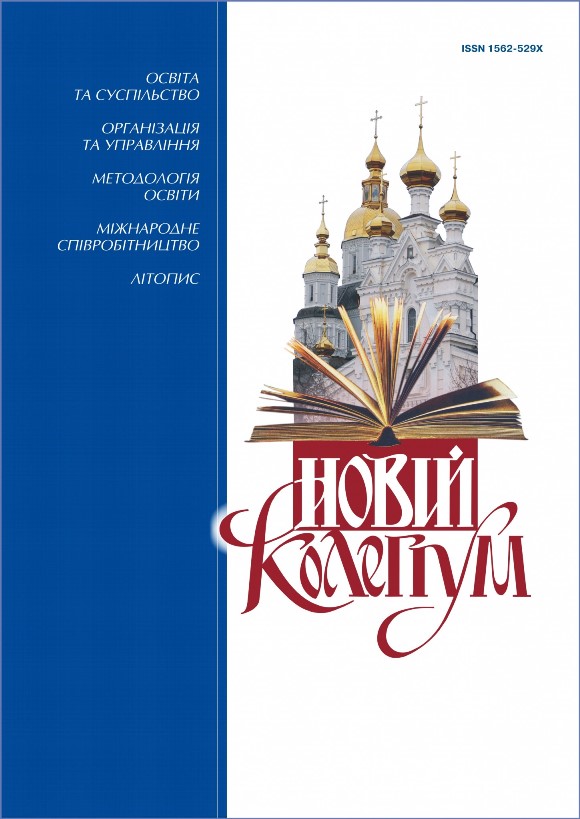Leisure pedagogy – the key to develop professional competences
DOI:
https://doi.org/10.30837/nc.2020.2.66Keywords:
student, spare time, recreation, leisure, leisure activities, leisure pedagogy, leisure competenceAbstract
The article deals with issues related to the definition of professional and leisure competencies, the need to create a leisure environment in a higher education institution as an important factor in the formation of professional competencies of future educators.
The content and methods, essence and technologies, functions and role of leisure activities for self-realization of personality research of scientists (I. Biletska, I. Boichev, V. Bochelyuk, N. Huziy, N. Maksimvska, B. Naboka, I. Petrova, I. Sidor, O. Tadeusz, B. Titov) are described in the article.
The purpose of the study is to analyze the peculiarities of the organization of leisure activities in a higher pedagogical institution, the result of which is the successful socialization of the student's personality and the formation of leisure competence in future teachers.
Professional leisure competence of the teacher is a specific professional and personal education, which provides productive pedagogical activity in the field of cultural and educational leisure and recreation, promotes the successful realization of educational tasks, allows effective use of artistic and creative forms and specific methods of teaching and upbringing in pedagogically organized leisure and form a certain integrated professional competence system of teacher who organizes cultural and leisure activities and recreation; and also ensure that future professionals are prepared for successful cultural and educational activities.
Thus, the social state of society, the task of building a democratic state and the civil society creation encourage the educational process to be improved.
Vocational training for future educators has potential reserves for a more effective formation of readiness to organize leisure activities. Further research may be aimed at identifying the features of the professional leisure competences’ formation in future educators, in accordance with requirements of new generation standards, which take into account the harmonization of specialist training’s content in the context of European integration and current trends in labor market.
References
Віаніс-Трофименко К.Б., Лісовенко Г.В. Підвищення професійної компетентності педагога. Харків : Вид. група «Основа», 2007. 176 с.
Воловик А.Ф., Воловик В.А. Педагогіка дозвілля : підручник. Харків : ХДАК, 1999. 332 с.
Гузій Н.В., Тадеуш О.М. Змістові орієнтири підготовки фахівців у галузі педагогіки дозвілля у ракурсі компетентісного підходу. Електронний ресурс. Режим доступу : http://enpuir.npu.edu.ua/bitstream/123456789/21734/1/Guzii_Tadeush.pdf
Олефір Ю.А. Сутність і структура понять «компетентність» і «компетенція» у психолого-педагогічній літературі. Електронний ресурс. Режим доступу : http://nbuv.gov.ua/UJRN/nvnau_ped_2013_192%282%29__5
Ольхова Н.В. Особливості організації виховного процесу в сучасному вищому навчальному закладі // Наук. вісник Волинського нац. ун-ту ім. Лесі Українки. 2010. № 23 : Педагогічні науки. С. 62-67.
Сєваст’янова О.А. Соціально-педагогічні умови соціалізації студентської молоді у виховному процесі вищого навчального закладу : дис. …канд. пед. наук : 13.00.05. Львів, 2007. 209 с.
Яременко Н.В. Формування компетентності майбутнього педагога з організації дозвіллєвої ігрової діяльності учнів. Електронний ресурс. Режим доступу : http://eprints.zu.edu.ua/3765/1/05yanvdu.pdf

